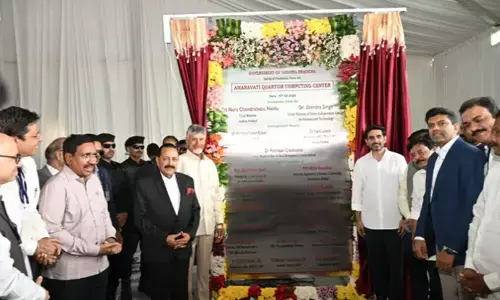Centre mulling some respite on LTCG tax regime for real estate sector
Share :

Amid the debate on the impact of the long-term capital gains (LTCG) tax on the real estate sector, the government is mulling options to address concerns of the stakeholders, including a "grandfathering clause", likely allowing transactions completed before July this year to continue benefiting from previous indexation rules.
New Delhi: Amid the debate on the impact of the long-term capital gains (LTCG) tax on the real estate sector, the government is mulling options to address concerns of the stakeholders, including a "grandfathering clause", likely allowing transactions completed before July this year to continue benefiting from previous indexation rules.
When a new clause or policy is added to a law, certain people may be relieved from complying with the new clause which is called "grandfathering".
In the Union Budget, Finance Minister Nirmala Sitharaman announced the withdrawal of indexation benefits from real estate and lowered the LTCG tax from 20 per cent to 12.5 per cent. Indexation adjusts the purchase price of an asset for inflation, thereby reducing the gains and ultimately the tax liability. According to industry sources, for real estate transactions, the government may be looking at allowing taxpayers to choose between the old and new LTCG regimes.
However, the picture will only be clear once FM Sitharaman addresses the LTCG issue in her response to the Finance Bill likely on Wednesday, reports said.
Mukul Bagla, Chair of the Direct Tax Committee at PHD Chamber of Commerce and Industry (PHDCCI), said that in the Finance Bill 2024, the Finance Minister has rationalised the provisions of taxation of a capital gain on the real estate sector. However, at the same time, the Bill has denied the benefit of indexation of the cost with respect to all transactions which take place after July 23, 2024.
The PHD Chamber told Revenue Secretary Sanjay Malhotra that the above change will have an adverse impact on the ongoing real estate transactions.
"It was proposed to the Revenue Secretary that the old law may be retained or retained at least till March 31, 2025. It was also proposed that an option be given to the SEC that it can choose between the old regime where indexation was allowed and tax was to be paid at 20 per cent, and the new regime wherein there is no indexation loan, but the tax has to be paid by at the rate of 12.5 per cent," Bagla told IANS.
Such options are already available to the SEC when choosing the taxation for individuals under the new regime and the old regime.
"Also, options are available for companies whether to pay tax at the rate of 22 per cent or at a higher rate by claiming deductions, so it was suggested to the Revenue Secretary that an option may also be given in respect of taxation of capital gain, so that the SEC can choose whichever method is more beneficial to it," Bagla contended.
The Revenue Secretary has said that the LTCG tax regime changes were driven by simplicity, fairness and equity.













